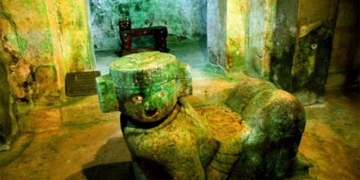This profession was so dangerous that a single misstep could lead to death during the Qing Dynasty (China). What profession is this?
The Qing Dynasty was the last feudal dynasty in Chinese history, ruled by the Aisin Gioro clan. During this dynasty, people engaged in various occupations. However, there was one particularly dangerous job that not everyone could undertake: the profession of cutting hair for the emperor.
In ancient times, both men and women, young and old, placed great importance on their hair. They believed that hair should be kept natural and not cut or shaved casually. However, after the Manchus came to power, Prince Regent Dorgon – a significant figure in the early Qing period – issued a famous edict mandating hair shaving.

Shaving heads and braiding hair into queues was mandatory for all men during the Qing Dynasty.
According to this decree, all men, from young boys to the elderly, had to adopt the distinctive queue hairstyle of the Manchu people. This hairstyle required half of the head to be shaved, with the remaining hair braided. The end of the braid was typically tied with a cord. When engaging in activities or work, Manchu men often wrapped their braids at the back of their heads.
Initially, many Han Chinese resisted the mandatory shaving and braiding laws. However, under the harsh and brutal oppression of the Qing government, the Han people were forced to comply with the hair shaving and braiding regulations like the Manchus.
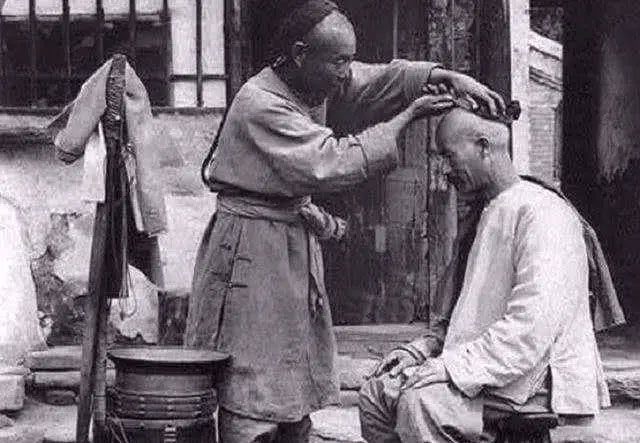
The profession of cutting hair became popular during the Qing Dynasty.
As a result, the hair cutting profession developed and became widespread during this dynasty. Cutting hair and shaving heads for common people was already challenging. Especially, shaving required the barber to be very careful, as even a slight mistake could injure the customer.
However, a select few barbers even faced the imminent threat of death when tasked with shaving the emperor’s head. The emperor was regarded as the “Son of Heaven,” holding supreme power over the nation. Therefore, the emperor’s safety was always the top priority.
Everything from the emperor’s clothing and diet to his daily activities was monitored, scrutinized, and regulated to ensure the safety of the “Son of Heaven.” Naturally, shaving the emperor’s head was carried out with the utmost care.
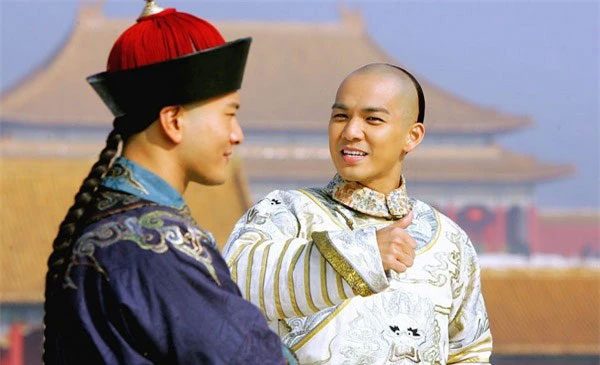
Shaving and braiding the emperor’s hair is a task that few dared to undertake.
According to Manchu tradition, although the hair was neatly braided at the back, men frequently had to shave half their heads for hunting or traveling, as their living areas were rugged. Thus, the emperor also had a need for hair shaving like commoners.
However, shaving the emperor’s hair was vastly different from that of ordinary people, as even a slight mistake could lead to execution for the barber. Moreover, during the shaving process, guards always stood by, closely watching the barber’s hand holding the razor. Should the emperor get injured, the barber would immediately be arrested and taken for trial. Thus, shaving the emperor’s hair became one of the most dangerous professions during the Qing Dynasty.
Shaving and cutting the emperor’s hair could lead to death
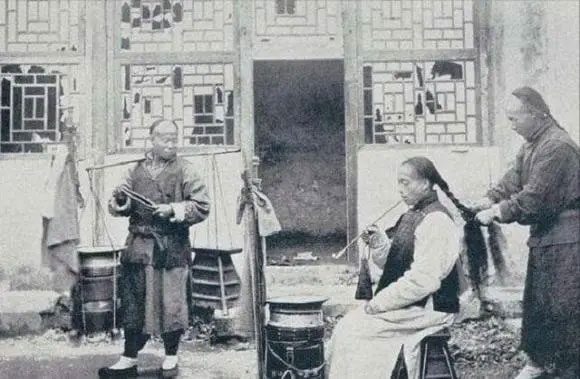
During the shaving process, any misstep by the barber could injure the customer.
Shaving and cutting the emperor’s hair had to adhere to many strict regulations within the palace. Accordingly, the Qing Ministry of Internal Affairs imposed numerous requirements on barbers when shaving the emperor’s hair. Before entering the palace, these barbers had to change their clothes and use specialized razors to shave the emperor’s hair.
Furthermore, when beginning to shave the emperor’s hair, the barbers had to follow even stricter rules. Specifically, barbers were only allowed to shave the emperor’s hair with their right hand, while the left hand was not permitted to touch any part of the emperor’s body.
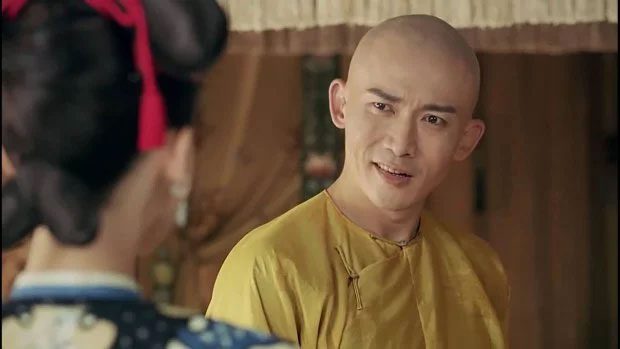
Not only shaving and cutting hair, but in daily activities, not everyone was chosen to serve the emperor.
Importantly, during the shaving process, barbers sometimes had to hold their breath, as any breath blowing onto the emperor’s head would be considered a crime of disrespect. Additionally, the timing of shaving the emperor’s hair was also strictly regulated. Typically, the shaving would start when the sun rose in the southeast. Becoming the emperor’s barber required not only high skill but also was a “test” of calmness and pressure resistance.
For these reasons, it is clear that shaving the emperor’s hair could be considered one of the most dangerous professions during the Qing Dynasty.
- Why did the Qing Emperor immediately dismiss his concubines after intimate moments?
- A series of images depicting the true appearances of the late Qing Dynasty civil and military officials, vastly different from those in films
- A series of images that will astonish you with the real beauty of the Qing Dynasty’s noblewomen

















































